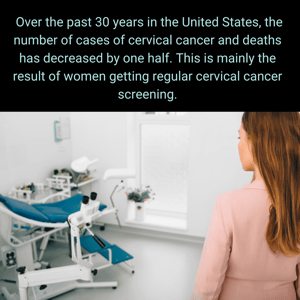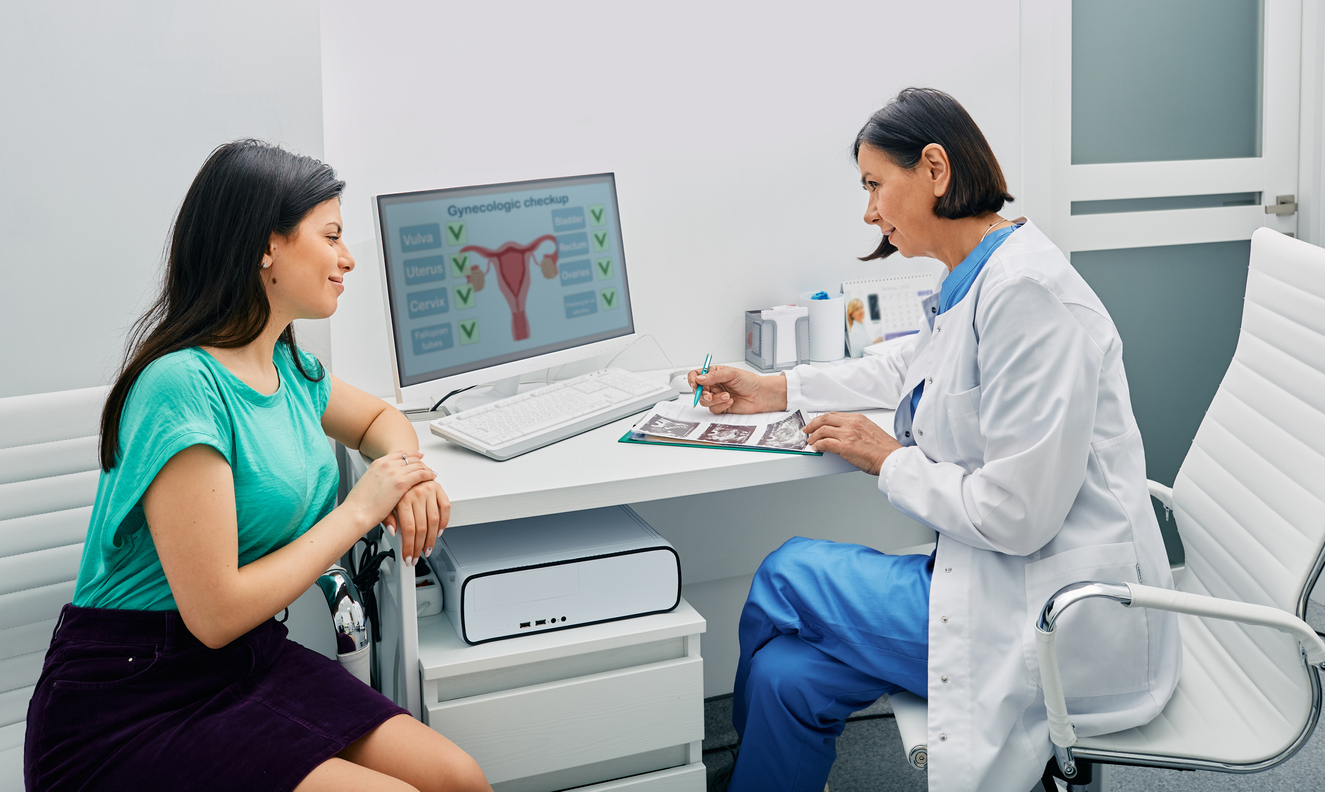Wondering how often to get screened for cervical cancer?
In 2020, the American Cancer Society (ACS) issued new guidelines for cervical cancer screening, which suggest starting at a slightly older age than previous guidance and adding a type of screening called an HPV test. Here's what you need to know, along with what these tests involve and why they're important.
Test timing guidelines
.png?width=300&height=300&name=Copy%20of%20IG%20-%20Blog%20Post%20Promo%20(2).png) Previously, the ACS recommended cervical cancer screening begin at age 21, with a pap test every three years until age 65. But studies don't support benefits for beginning that early, so the new guideline is to begin at 25 years old. Also, most HPV infections go away on their own for those under age 25, which means screening may lead to unnecessary treatment.
Previously, the ACS recommended cervical cancer screening begin at age 21, with a pap test every three years until age 65. But studies don't support benefits for beginning that early, so the new guideline is to begin at 25 years old. Also, most HPV infections go away on their own for those under age 25, which means screening may lead to unnecessary treatment.
Keep in mind that if you have a family history of cervical cancer, your doctor may suggest an earlier screening timeframe. But for those without increased risk, screening should start at age 25. The stop at age 65 hasn't changed, however. As long as prior tests were normal and there is no cause for concern, the ACS doesn't recommend screening past this age since research doesn't indicate there are any benefits for continued screenings.
In terms of how often screenings should be done from age 25 to 65, the ACS recommends an HPV test alone every five years for everyone with a cervix. If that's not available, the group suggests an HPV/Pap co-test every five years or a Pap test every three years.
Difference in tests
.png?width=300&height=300&name=Copy%20of%20IG%20-%20Blog%20Post%20Promo%20(3).png) Although all three types of tests—HPV alone, HPV/Pap, and Pap alone—can find cervical cancer precursors that may develop into cancer, the ACS notes that studies indicate HPV tests are more accurate and reliable than Pap tests. HPV tests detect the human papillomavirus, which can cause cervical cancer. The Pap test, which has been the standard screening tool for decades, tend to have lower sensitivity compared to HPV tests, which is why they have to be repeated more often. HPV tests also detect a wider range of abnormal cell changes.
Although all three types of tests—HPV alone, HPV/Pap, and Pap alone—can find cervical cancer precursors that may develop into cancer, the ACS notes that studies indicate HPV tests are more accurate and reliable than Pap tests. HPV tests detect the human papillomavirus, which can cause cervical cancer. The Pap test, which has been the standard screening tool for decades, tend to have lower sensitivity compared to HPV tests, which is why they have to be repeated more often. HPV tests also detect a wider range of abnormal cell changes.
The ACS adds that many people who get an abnormal Pap test actually have a very low chance of developing cervical cancer. Although it seems like an HPV/Pap co-test would be the best of both worlds, the ACS notes that these tests are less efficient and can add additional effort and cost without being a better detection tool. Regardless of what test is used, if you get a positive test result, you'll typically have a second test to confirm the results. If that's positive as well, your doctor will likely recommend a procedure called colposcopy, which takes samples from the cervix for more analysis.
Importance of screening

Like other types of cancer screening, catching abnormal cells early can be hugely important for preventing cancer from developing or stopping its progress if it's already happening. The ACS notes that screening tests can prevent most cervical cancers, and widespread testing has been a major reason that the mortality rate from cervical cancer has dropped significantly since the Pap test was developed. The group hopes that with the HPV test and the new guidelines, rates of this type of cancer will continue to decline. The American College of Obstetricians and Gynecologists adds that it usually takes three to seven years for high-grade changes in cervical cells to become cancer, which means that even with five years between screenings, it's still highly possible to catch precancerous cells and prevent cervical cancer.
